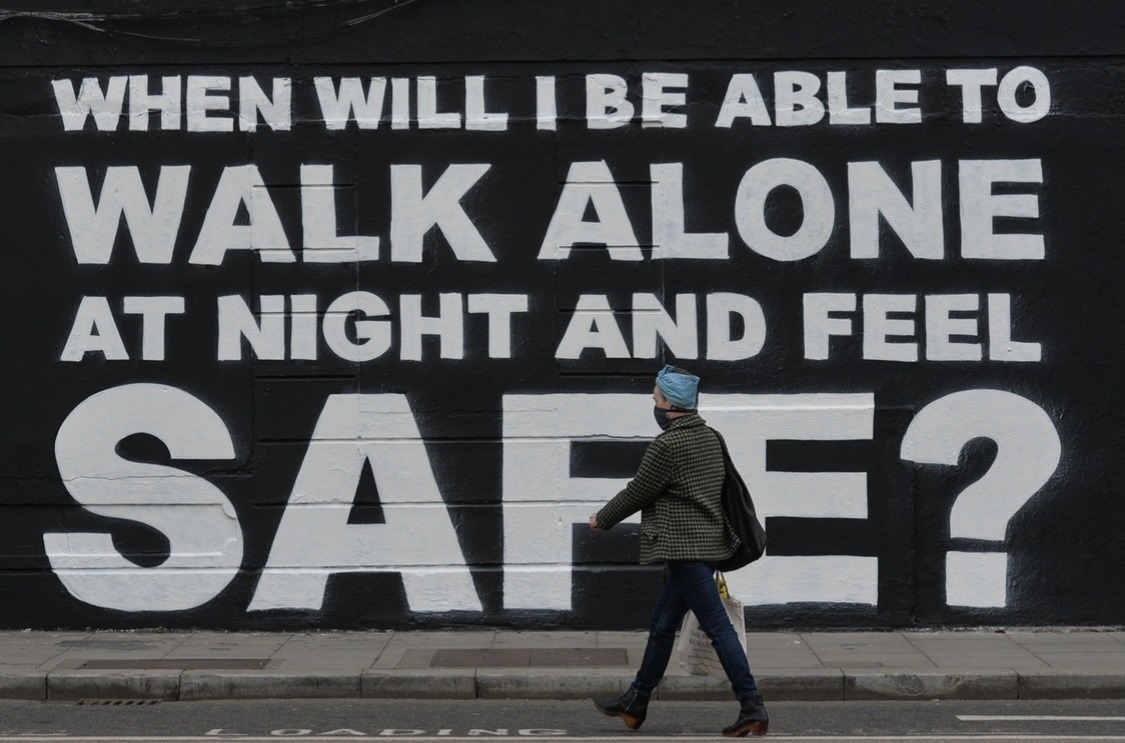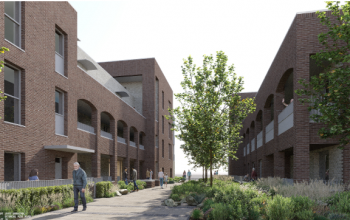Nearly three-quarters of women in the UK have experienced at least one form of sexual harassment in their lifetime, according to a survey by YouGov.
In the January survey commissioned by UN Women UK, over 1,000 women selected all the listed types of sexual harassment they had ever experienced in a public space, with 71 per cent declaring they had been sexually harassed at least once in their lifetime.
This ranged from being stared at in public to being touched without consent to being forced to participate in sexual behaviour.
Executive director of UN Women UK Claire Barnett said: “This is a human rights crisis. It’s just not enough for us to keep saying ‘this is too difficult a problem for us to solve’ – it needs addressing now.”
The most commonly experienced form of sexual harassment was “being cat-called or wolf-whistled” with over half (51 per cent) of women declaring they had experienced it at least once in their lifetime.
Alicia Cuthbert* said she remembered walking home from school in Coventry, wearing her uniform, and seeing a man lean out the window of his car to yell “sit on my face”.
She said she felt “frozen and terrified”.
At 24, having experienced more cat-calling than is worth keeping track of, Cuthbert said that even these lower-level forms of harassment have made their mark on her peace of mind.
“It makes you feel unsafe in places where you would normally feel safe,” she said.
“You are just going about your daily life and you realise that there are people who are constantly trying to objectify you. It just feels like you are only there to be an object of sexual desire.
“It makes you feel like if they can harass you verbally in the street and they have no problem doing that, what else do they not have a problem doing?”
The least commonly experienced form of sexual harassment, at seven per cent, was “having images taken without your consent or taken consensually but shared without your consent”.
Gina Heath*, a 25-year-old consultant who grew up in London, is one of the seven per cent.
The morning after a one-night-stand, she caught the man sending a picture of her coming out of the shower in a towel to a groupchat of his friends.
“That was pretty gross,” she said. “I think at this point though, I’m just, what would the emotion be? Defeatist? Resigned. Resigned to it.”
Heath is not alone in her resignation.
The same survey showed that 96 per cent of participants did not report incidents of sexual harassment, 45 per cent of them citing “I didn’t think reporting it would help”.
Different experiences across age groups
The YouGov survey is further broken down by age group.
According to the data, 86 per cent of 18-24-year-olds have experienced at least one form of sexual harassment in their lifetime and only three per cent had never experienced any of the listed variations.
This age group reported more experience in almost all categories.
In contrast with the 18-24-year-olds, almost 10 times as many participants (29 per cent) aged 55 and above had never experienced any of the listed forms of sexual harassment.
Cuthbert said this was likely to reflect a change in expectations.
“I think we have actually progressed as a society,” she said.
“At least now we recognise that these things on the list are sexual harassment, whereas I think some of the older women participating might have just normalised and accepted it to the point where they don’t see it as harassment.”
Do women feel protected?
The fear with which women experience sexual harassment is often rooted beyond the specific circumstances and in the question of what it might lead to.
Heath said: “Over time it has an impact because I think it makes you feel threatened. If they are going to do that, what else will they do in public?”
She said that behaviours left unchecked can lead to more serious situations, citing the abduction and murder of Sarah Everard as an example.
The realities behind this dataset, combined with the recent case of Sarah Everard, have sparked serious demand from women up and down the country for greater protection from gender-based violence.
In response, Boris Johnson proposed that plainclothes police officers could patrol bars and clubs at night to “identify predatory and suspicious offenders”.
This was generally met with criticism, born out of distrust in the police and fear that this type of measure would bring the UK one step closer to a surveillance state.
The All-Party Parliamentary Group for UN Women has launched a Safe Spaces Now campaign to make the UK’s public spaces safer for women, girls and marginalised groups.
Even so, it is still felt that responsibility lies with individuals to come up with precautions for their own safety.
Barnett said: “We are looking at a situation where younger women are constantly modifying their behaviour in an attempt to avoid being objectified or attacked, and older women are reporting serious concerns about personal safety if they ever leave the house in the dark – even during the daytime in winter.”
Cuthbert said: “The things that we do have to keep us safe have either been gifted to us or taught to us by other women.
“Three different family members of mine have given me a rape whistle. My mum gave me two different ones and asked which one I preferred.
“I feel like the onus is entirely on women to protect themselves.”
#NotAllMen
When UN Women UK first published the data, the Twitter trend #NotAllMen followed swiftly as men took to social media to defend their gender.
“I think that seeing #NotAllMen is one of the most disheartening things out of all of this,” Cuthbert said.
“Because we know not all men, but if you are a man that is not calling out other men on these things then you are part of the problem.”
There are men who have taken up the charge.
Heath’s place of work held a forum to discuss Sarah Everard’s case and a male colleague asked what men could do to be true allies.
“I think it’s really good that these conversations are being had,” Heath said. “I hope discussions are happening in families with dads and brothers and I hope that discussions are happening among male friendship groups.”
Men have a part to play in making the UK safer for women, as Cuthbert succinctly put it: “You say not all men, but you should be thinking almost all women.”
*Gina Heath and Alicia Cuthbert are not their real names.





